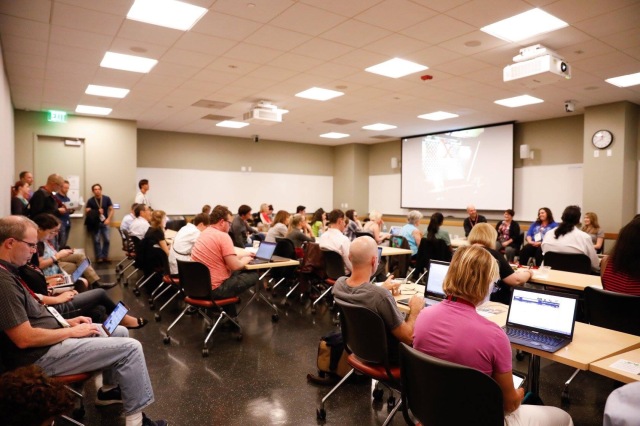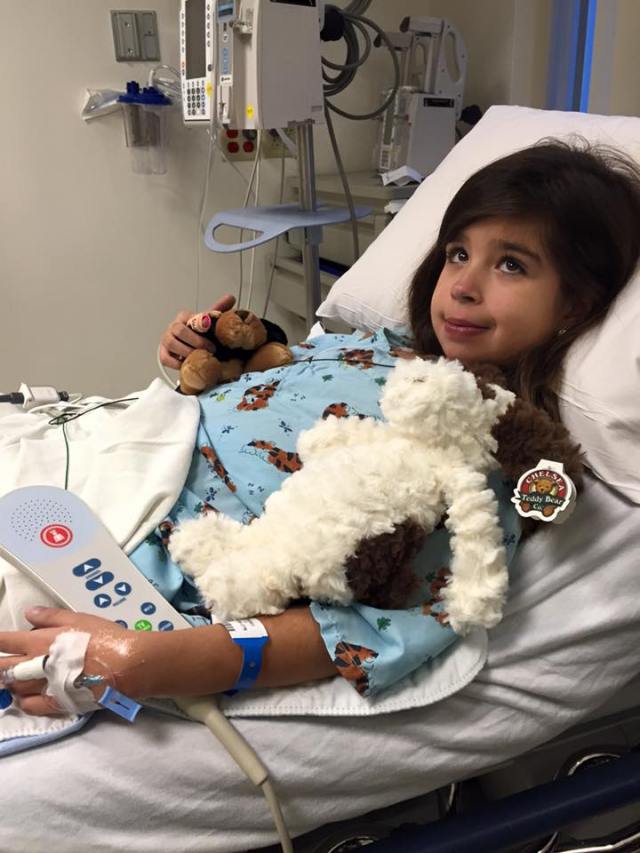“One who has passed away from earth life has said,
‘Kind words and liberal estimates and generous acknowledgements, and ready appreciation, unselfish delight in the excellence of others, these are the best signs of a large intellect and a noble spirit. To be true, to be loving is the secret of Christian growth.'”
A few weeks shy of Stanford Medicine X (#MedX) 2016, I bawled into my coffee mug, deeply moved by Mrs. Jane Lathrop Stanford’s words.
My time at the Cantor Arts Center at Stanford University, as well as our MedX ePatient delegate newsletter, taught me more about the Stanfords. They were a prominent family involved in politics and the railroad business in the late 1800s. The Stanfords’ son, Leland, Jr., was a curator who passed away from typhoid as a teenager.

To honor their child’s memory and love of learning, the Stanfords founded Stanford University in 1891. Mrs. Stanford composed a heartfelt speech commemorating the event, which I encourage you to read in its entirety here.
For me, the most striking aspect of Mrs. Stanford’s speech was her handwritten note after-the-fact of the inaugural celebration: “Not read as expected as I did not have the courage on that opening day of the University- so important in our lives.” She signed and dated the note Oct. 1891.
As I publish this blog post in Oct. 2016, I am cognizant of the poetic symbolism that makes my undergrad English major heart flutter. Firstly, I admire Mrs. Stanford for being an outspoken, successful woman in the time in which she lived. But I respectfully disagree that she “did not have the courage on that opening day.” The anxiety, perhaps? Yet the very act of voicing that anxiety in her notes, in the 1890s nevertheless, is an example of bravery.
Courage was surely present in Mrs. Stanford. Courage molded something out of grief and loss, creating a topnotch university where disease is studied and tamed, where support abounds to this very day so perhaps others are spared the pain that the Stanfords endured.
As a type 1 diabetic for almost 26 years, I, too, have searched for a greater purpose in community despite health woes. Stanford Medicine X is a good place to start. For instance, while my continuous glucose monitor (CGM) alerted to high levels of glucose in my blood, Sophie Thacher’s simultaneously sounded off to an urgent low. We are both type 1 diabetics, connected deeply by our friendship and our willingness to work through the challenging moment together, rather than run from it.
#DOC (diabetic online community) at #MedX love!
Whether attending the conference as advocates, pharmaceutical innovators, healthcare providers, tech developers, students, and so on, #MedX reminds us that healthcare is a human story first and foremost. Here, you will find everyone included™.
With Yoko Sen’s calming voice as our guide, we pondered aloud the last sounds we would like to hear before we die. The Ignite! talks of recently-dubbed MedX Scholars such as Danielle Cosgrove, Jeri Burtchell, Liz Salmi, and Terry Marlin moved us to tears.
We found joy in the coffee break conversations, too- with compassionate leaders like Dr. Bonnie Feldman, who understands firsthand why those of us with autoimmune disease want to safeguard future generations from our conditions.
We shared cocktails, laughter, and inside joke swear words with Elizabeth Jameson and her caretakers, Sheri and Catherine. This dynamic healthcare team is the epitome of grace, resilience, and love. I will carry your example in my heart forever.

Rockstar Charlie Blotner (you’re never losing that nickname!) moderated our MedX panel called Ah-Ha! moments in mental health and chronic disease management, which included myself, Danielle Edges, Mark Freeman, and Sarah Kucharski as panelists.

Panel group selfie via Mark Freeman

Photo courtesy of Charlie Blotner/Stanford MedX flickr
We were humbled by the standing-room-only attendance for our panel, and we want to highlight the want and need for the mental health discussion to be ongoing within the context of managing chronic conditions. As Mrs. Stanford’s note illustrates, sometimes stating what you feel empowers others to do the same.

Photo courtesy of Charlie Blotner/Stanford MedX flickr

Via Twitter
There are days where I physically do not feel well and I am angry at diabetes. Angry that it hurts. Angry that I cannot always hide that fact from my loved ones. Angry that I’m angry. (It’s definitely a thing!)
But then I look around at Medicine X, and all I see is hope. This does not mean complete denial of the bad stuff. Acceptance does not mean giving up. Hope is found in the camaraderie that we share, the things that are said and the unspoken understanding of what does not have to be said, the head nods and the bear hugs.
If I did not have diabetes, I might not be an advocate with the honor of attending Stanford Medicine X. I might not have the privilege of watching my friends Natalie Abbott and Cassius explain Moebius syndrome to a global audience. I might not hear Danielle Edges’ laughter over the phone. No matter how or why I got here, I am eternally grateful to be part of this MedX family.

Life is not about the “I might not’s”. Rather, MedX has taught us that life is about the “How might we…?’s”. How might we be brave, and good? How might we make healthcare better for all?
Together is how we might, and how we are.
Mrs. Stanford may not have stood on the podium and delivered her speech at Stanford’s inaugural ceremony. Yet I cannot help but to think that she now smiles from her heavenly perch as Medicine X rises to new heights each year. The platform was already there for us; we have chosen to use it courageously, honorably, and generously as we connect the healthcare dots to form a more empathetic world. I pray that those who come after us will continue to build upon this structure of innovation, creativity, and goodwill.
As we like to say, the best is yet to come…
#MedX
Images shared are from Stanford Medicine X 2016 and related events.
I attended Stanford Medicine X 2016 as a junior member of the ePatient advisory panel. As such, I accepted a partial scholarship for my participation. My disclosures can be found here.















